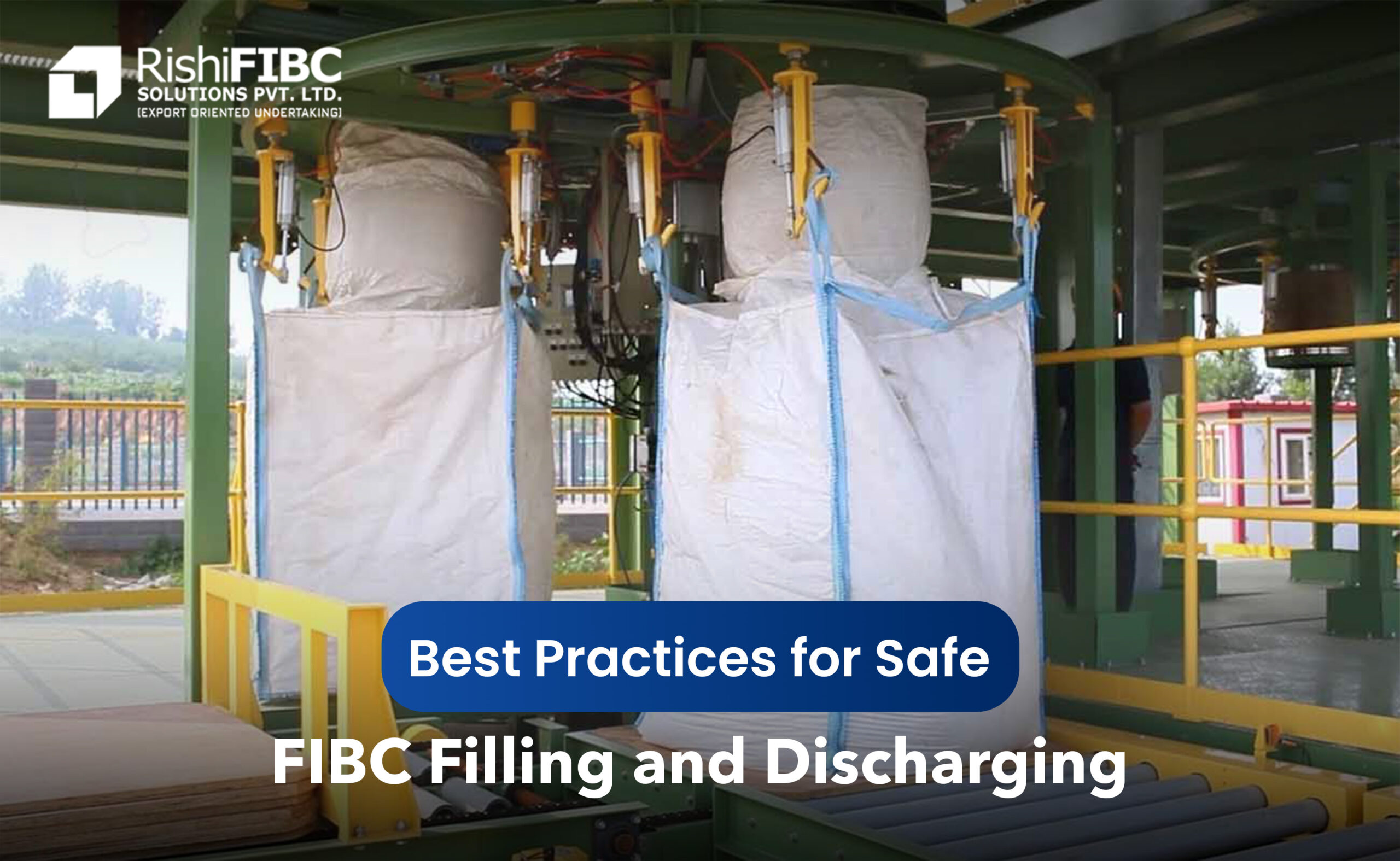Safe FIBC Handling Guidelines: Filling and Discharging
Rishi FIBC, a leading Jumbo Bag Manufacturer and trusted Jumbo Bag Supplier, provides guidelines for safe FIBC filling and discharging. Our experienced team emphasizes thorough pre-use inspections and secure lifting techniques to ensure an even, stable load. We cover avoiding overfill, complying with SWL safety factors (5:1 vs 6:1), proper equipment compatibility, and safe discharge practices. Following these steps ensures a safe work environment and protects personnel, reflecting Rishi FIBC’s strong commitment to safety in bulk bag handling.
Pre-Use Inspection: Jumbo Bag Manufacturer Guidelines
Before use, conduct a thorough inspection of each FIBC. Check the bag for damage, holes, or fabric wear. Verify that all lift loops and seams are intact. Confirm the label shows the correct Safe Working Load (SWL) and safety factor. Ensure product compatibility and environmental suitability.
- Check integrity: Look for cuts, tears, or damage to loops and seams. Any flaw can reduce bag strength.
- Verify labels: SWL and safety factor (5:1 or 6:1) must match your load and use. Match product info on the label to the material in the bag.
- Examine spouts and liners: Ensure closure ties and discharge spouts are functional. The liner (if present) must be clean and intact.
- Confirm cleanliness: The bag should be free of old material, moisture, or debris that could cause contamination.
Secure Lifting and Filling: Jumbo Bag Manufacturer Best Practices
Safe lifting starts with correct equipment and technique. Use a spreader bar or forklift attachment designed for bulk bags. Always engage all lift loops and keep them vertical when lifting. The lift equipment (hoist hook or forklift tines) should be smooth and free of sharp edges.
For safe filling:
- Even filling: Position the bag squarely. Fill from the centre or multiple fill spouts to avoid a lopsided load. A level fill prevents tipping.
- Controlled filling: Flow material slowly. Stop if the bag becomes unstable or bulges.
- Secure spouts: After filling, tie off the top spout and bottom discharge. This prevents spills and dust release.
Load Limits: Understanding SWL and Safety Factors
Every bulk bag has a Safe Working Load (SWL), the maximum weight it can handle. Do not exceed the SWL printed on the bag. The SWL accounts for a safety factor. For example, a 1000 kg SWL bag with a 5:1 safety factor is tested to hold 5000 kg, but should only be loaded to 1000 kg.
FIBC Bulk Bag Manufacturers often use:
- 5:1 safety factor: For single-trip or light-duty bags. These are designed for one use and should never be overloaded.
- 6:1 safety factor: For multi-trip or heavy-duty bags. These bags are tested to carry six times their SWL, but still should only be loaded to the rated SWL.
Rishi FIBC ensures each jumbo bag meets these standards. Never fill a bag above its SWL. Overloading can cause fabric or seam failure and is extremely dangerous.
Load Limits: Understanding SWL and Safety Factor
Overfilling a bag can be as risky as overloading. Excess height or width strains the bag and may cause it to burst or become unstable when lifted. Rishi FIBC recommends filling only to the bag’s recommended level, usually marked on the bag or provided documentation.
Always monitor the fill level. If the bag’s top is stretched or leaning, stop filling. Even distribution of material prevents side bulging. Keep the bag clear of obstructions at all times. Proper volume control by the operator is key to maintaining stability and safety.
Equipment compatibility is crucial. Forklift or crane attachments must suit the FIBC style. For example, use a forklift frame to lift without poking loops. Choker bars, spreaders, or slings should not cut into straps. Rishi FIBC designs jumbo bags to work with standard handling equipment, but always double-check that your tools fit.
After emptying, close the spouts and move the empty bag away. Follow any static-control procedures if handling flammable or dust-prone materials. By adhering to these guidelines, make sure to compliance with industry safety standards and protect everyone involved. Trust a certified Jumbo Bag Manufacturer when selecting FIBCs to ensure quality and safety.







